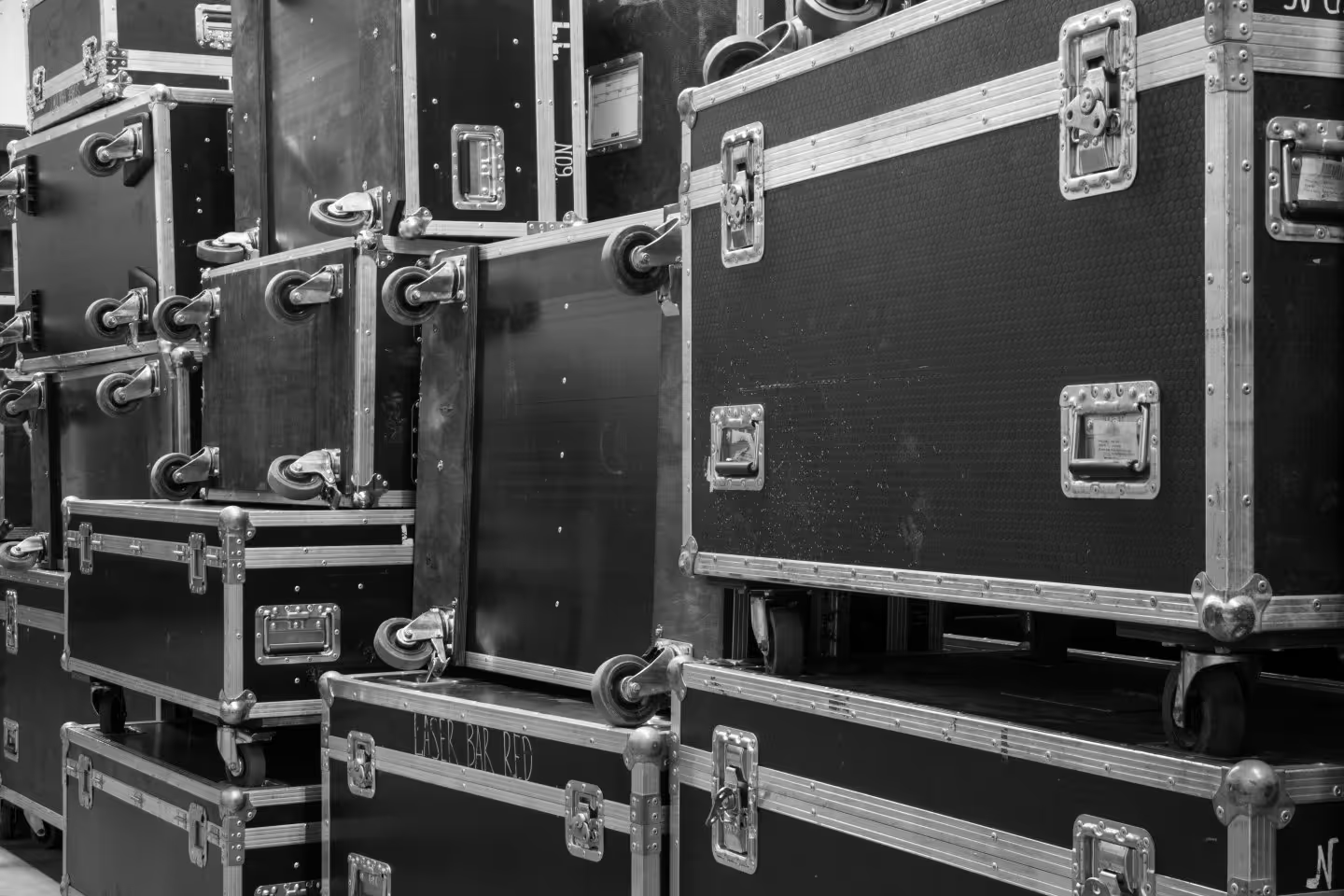Starting a Rental Business

Starting a rental business can be a smart and profitable venture. With the increasing demand for flexibility and cost-effectiveness, many consumers prefer renting over buying. From property rentals to equipment leasing, the opportunities are vast and varied.
In this guide, we will walk you through the essential steps and considerations for starting a rental business, providing practical tips and insights to help you succeed. Whether you are an aspiring entrepreneur or looking to expand your current business, this resource will equip you with the knowledge to get your rental economy started confidently.
Additionally, we will explore various profitable rental business ideas in the rental market, highlighting opportunities that offer flexibility, environmental benefits, and potential for passive income.
1. Understanding the Rental Business
2. Planning Your Rental Business
3. Setting Up Your Rental Business
4. Running Your Rental Business
5. Growing Your Rental Business
6. Strengthening Your Brand for Long-Term Success
Understanding the Rental Business
What is a Rental Business?
A rental business involves leasing out assets, equipment, or property to customers for a specified period in exchange for regular payments. Essentially, it allows consumers or businesses to use goods without purchasing them outright. This model caters to a variety of industries, from real estate and vehicles to tools and electronics. The key to a successful rental business is maintaining high-quality assets and providing excellent customer service. This ensures repeat business and positive word-of-mouth referrals.
Understanding the market demand and targeting the right audience can make a significant difference in the success of your rental business. For instance, launching your own rental business by choosing a niche aligned with your interests, understanding market demand, and developing a comprehensive business plan can help navigate potential challenges and risks.
Moreover, ensuring you have a robust system for managing rentals, tracking inventory, and handling maintenance is crucial for smooth operations.
Types of Rental Services
There are several types of rental services you can consider when starting a rental business. Property rentals are perhaps the most well-known, involving the leasing of residential or commercial spaces. The house rental business is particularly profitable for property owners looking to generate income. Vehicle rentals, including cars, vans, and even bicycles, cater to travellers and residents needing temporary transportation.
The car rental business thrives in travel destinations, while the bike rental business is popular in urban areas and tourist destinations. Equipment rentals, such as construction machinery or home improvement tools, serve contractors and DIY enthusiasts. The equipment rental business spans various niches like construction machinery and medical apparatus. Technology rentals, like laptops and AV equipment, are popular for events and short-term projects. The av equipment rental business is especially relevant for conferences and parties.
Additionally, you can explore niche markets, such as costume rentals, furniture leasing, or party supplies. The bounce house rental business, for example, appeals to children's events. Each type has its unique demands and customer base, so it’s essential to research and understand the specific needs of your target market.
Offering a variety of rental services can also diversify your revenue streams, providing more stability and growth opportunities for your business. The storage rental business offers passive income potential without the burdens of equipment handling. The vacation rental business appeals to travelers seeking short-term leases.
Market Demand, Opportunities, and Profitable Rental Business Ideas
Understanding market demand is crucial for starting a first rental business in 2025. The rental industry is a burgeoning market that is increasingly appealing to entrepreneurs due to shifting consumer preferences towards renting for practicality and sustainability. The shift towards a sharing economy has increased consumer interest in renting over buying.
Economic factors, such as the high cost of ownership and maintenance, drive this trend. Urbanisation also plays a role, with city dwellers often opting for rentals due to space constraints. Opportunities abound to rent equipment used in various sectors. For instance, the rise in remote work has spiked demand for home office equipment rentals.
Similarly, the event industry frequently requires short-term rentals of furniture and AV gear. Seasonal patterns can also offer opportunities, such as increased demand for holiday rentals or winter sports and construction equipment rental. Analysing these trends helps identify gaps in the market where your rental business can thrive.
Conducting surveys, studying competitors, and keeping an eye on consumer behaviour are all effective ways to gauge demand and spot opportunities for growth. A versatile rental business idea can cater to various customer needs and occasions, enhancing profitability and allowing for expanded service offerings.
Planning Your Rental Business
Market Research and Analysis
Before launching your rental business, conducting thorough market research and analysis is essential. Exploring various profitable rental business ideas can help you identify opportunities that maximize profitability. Start by identifying your target audience. Are you catering to individual consumers, businesses, or both?
Understanding your audience helps tailor your services to meet their specific needs. Next, analyse your competitors. Identifying their strengths and weaknesses, and looking for gaps in the market that you can fill, can help you discover promising rental business ideas. Use tools like surveys, focus groups, and online research to gather data on consumer preferences and behaviours.
Additionally, evaluate the economic conditions and trends in your chosen industry. Are there seasonal fluctuations in demand? What are the current pricing standards? Understanding these factors will help you develop a competitive edge. Finally, keep an eye on regulatory requirements and industry standards to ensure compliance. Comprehensive market research provides valuable insights, enabling you to make informed decisions and craft a robust business strategy.
Creating a Business Plan
Creating a business plan is a critical step in starting a rental business. A well-structured plan serves as a roadmap, guiding your online rental business towards its goals. This is especially important when launching your own bike rental business, as it can help you capitalize on the growing popularity of cycling tourism in urban areas and among tourists. Begin with an executive summary, outlining your business objectives, target market, and unique selling points.
Then, detail your market research findings, highlighting the demand and competition in your chosen industry. This is crucial for any rental business idea, as it can demonstrate the potential for profit in diverse niches. Next, describe your business structure and operations. How will you manage inventory, handle maintenance, and process rentals? Financial planning is also vital. Include projections for revenue, expenses, and profitability. Address how you will fund your business initially and manage cash flow.
Additionally, consider marketing strategies to attract and retain customers. Outline the channels you will use, from online advertising to partnerships. Finally, identify potential risks and develop contingency plans. A comprehensive business plan not only helps secure funding but also provides a clear strategy for achieving long-term success.
Securing Funding and Resources
Securing funding and resources is a pivotal step in planning your rental business. Start by determining the initial capital required for your business. This includes costs for purchasing rental inventory, setting up a physical location or online platform, marketing, and other operational expenses. Consider different funding options such as personal savings, bank loans, or investors. Each option has its pros and cons, so choose the one that best suits your business needs and risk tolerance.
Additionally, explore government grants or subsidies that might be available for small businesses. Once funding is secured, focus on acquiring high-quality resources. Reliable suppliers and vendors are crucial for maintaining the quality of your rental offerings. Establishing strong relationships with these partners can also lead to better pricing and more favourable terms. Securing adequate funding and reliable resources lays a solid foundation for your rental business, enabling smoother operations and growth opportunities.
Setting Up Your Rental Business
Legal Requirements, Licensing, and Rental Agreements
Understanding legal requirements and obtaining the necessary licences are crucial steps in setting up your rental business. First, choose the appropriate legal structure for your business, whether it be a sole proprietorship, partnership, or limited company. Each structure has different implications for liability and taxation. Next, register your business with the appropriate government authorities and obtain a tax identification number. Depending on your industry and location, you may need specific licences or permits to operate legally.
For example, property rental businesses might require landlord registration, while equipment rental might need safety certifications. Ensure that you are compliant with health and safety regulations to protect both your customers and your business.
Additionally, drafting clear rental agreements is essential to outline terms and conditions, including payment schedules, security deposits, and liabilities. Consulting with a legal professional can help you navigate these requirements and ensure your business operates within the law.
Choosing the Right Location
Choosing the right location is vital for the success of your rental business. The location should be easily accessible to your target market, whether they are local residents, tourists, or businesses. For property rentals, proximity to amenities, transport links, and business districts can significantly impact demand. If you are renting out equipment or vehicles, consider a location with high visibility and foot traffic to attract walk-in customers.
Additionally, ensure there is ample space for storing and maintaining your rental inventory. Evaluate the local competition and market demand in the area to ensure there is sufficient opportunity for your business to thrive. Affordability is also a key factor; consider the cost of rent, utilities, and any necessary renovations.
Finally, check local zoning regulations and business policies to ensure your chosen location complies with legal requirements. The right location can enhance customer convenience and boost your business’s visibility and growth.
Acquiring Initial Inventory
Acquiring initial inventory is a crucial step in setting up your rental business. Start by identifying the core items that your target market demands. Quality is essential; durable and reliable products will reduce maintenance costs and increase customer satisfaction. Establish relationships with reputable suppliers to ensure a steady supply of high-quality inventory. Consider bulk purchasing to negotiate better prices and payment terms. If budget constraints are an issue, explore second-hand or refurbished options, but ensure they meet safety and quality standards.
Additionally, maintain a balanced inventory, avoiding overstocking or understocking. Regularly review customer feedback and rental trends to adjust your inventory accordingly. For specialised equipment, consider renting it only when there is a confirmed demand to minimise initial expenditure. Properly cataloguing and tracking your inventory is also essential to streamline operations and reduce losses. Acquiring the right inventory sets the foundation for a successful and efficient rental business.
Running Your Rental Business
Marketing and Promotion Strategies
Effective marketing and promotion strategies are essential for attracting and retaining customers in your rental business. Rental companies must focus on effective marketing and sales strategies to thrive in a competitive market. Start by creating a strong online presence.
Develop a user-friendly website that showcases your rental offerings, pricing, and customer testimonials. Utilise social media platforms to engage with your audience and run targeted advertising campaigns. Search engine optimisation (SEO) is crucial for improving your website’s visibility in search results, making it easier for potential customers to find you.
Additionally, consider listing your business on online directories and rental platforms to expand your reach. Word-of-mouth referrals are invaluable, so encourage satisfied customers to leave reviews and share their experiences. Offering promotions, discounts, and loyalty programmes can also attract new customers and encourage repeat business. Networking with local businesses and participating in community events can further enhance your visibility. An effective marketing strategy will help establish your brand and drive consistent traffic to your rental business.
Customer Service Essentials
Providing excellent customer service is crucial for the success of your rental business. Start by ensuring that your staff are well-trained, knowledgeable, and friendly. They should be able to answer customer queries and provide guidance on the best rental options available. Clear communication is key, so make sure rental terms, pricing, and policies are transparent and easily accessible.
Prompt responses to enquiries, whether online, over the phone, or in-person, can enhance customer satisfaction. Handling issues or complaints swiftly and fairly is also important for maintaining a positive reputation. Offering flexible rental periods and convenient payment options can further improve the customer experience. Regularly seeking feedback allows you to identify areas for improvement and demonstrate that you value your customers’ opinions.
Additionally, providing well-maintained and clean rental items shows a commitment to quality. Excellent customer service can lead to repeat business and positive word-of-mouth recommendations, which are invaluable for growth.
Managing Finances and Operations
Efficiently managing finances and operations is vital for the sustainability of your rental business. Start by implementing robust accounting software to track income, expenses, and cash flow accurately. Regular financial reviews help identify trends and areas for cost savings.
Budgeting is essential; allocate funds for maintenance, marketing, startup costs and unexpected expenses. Inventory management systems can streamline operations, ensuring you have the right items available when needed and tracking their condition. Timely maintenance and repairs prevent costly downtime and extend the lifespan of your rental assets.
Additionally, setting clear policies for deposits, late returns, and damages can protect your financial interests. Employing a booking system can enhance operational efficiency by managing reservations and availability in real-time. Periodically evaluate operational processes to identify inefficiencies and implement improvements. Effective financial and operational management ensures your rental business remains profitable and can adapt to changing market conditions.
Growing Your Rental Business
Expanding Your Inventory
Expanding your inventory is a strategic move for growing your rental equipment and business. Start by analysing customer feedback and rental trends to identify high-demand items that can increase your revenue. Diversifying your inventory can attract a broader customer base and enhance your competitive edge. For instance, if you primarily rent out construction equipment, consider adding related tools or safety gear. Establish strong relationships with suppliers to secure quality products at favourable prices. Bulk purchasing or long-term contracts can also help reduce costs.
Additionally, monitor the performance of your current inventory to phase out items with low demand or high maintenance costs. Investing in technology, such as inventory management software, can streamline the process of adding new items and tracking their usage. Regularly updating your inventory ensures you meet market demands, enhancing customer satisfaction and driving repeat business. A well-planned inventory expansion supports sustainable business growth and increased profitability.
Diversifying Your Services
Diversifying your services is an effective way to grow your online rental store or business and attract a wider customer base. Start by exploring complementary services that align with your existing offerings.
For instance, if you rent out event equipment, consider providing event planning or setup services. This adds value for your customers and differentiates your business from competitors. Seasonal services can also be a smart addition, such as offering holiday decorations during festive periods or portable heaters in winter. Partnering with other businesses can help expand your service range without significant investment.
For example, a property rental business owner might collaborate with cleaning or maintenance services to offer bundled packages. Regularly soliciting customer feedback can provide insights into services they would find useful. Diversifying your services not only enhances customer satisfaction but also creates additional revenue streams, contributing to the long-term sustainability and growth of your rental business.
Building a Strong Brand
Building a strong brand is essential for the growth and success of your rental business. Your brand represents your business identity and sets you apart from competitors. Start by defining your brand’s core values and mission. What unique value do you offer your customers?
Consistency is key; ensure your branding is uniform across all touchpoints, including your website, social media, and physical locations. A professional logo, colour scheme, and tagline can create a memorable visual identity. Customer experience plays a significant role in brand perception, so focus on delivering exceptional service. Encourage satisfied customers to leave reviews and share their experiences, as word-of-mouth is a powerful branding tool.
Engaging content, such as blog posts or videos, can also enhance your brand’s online presence and authority. Building partnerships with other reputable businesses can further strengthen your brand. A strong, recognisable brand fosters customer loyalty and drives long-term business growth.
Strengthening Your Brand for Long-Term Success
As you reach the final stages of launching your rental business, it’s crucial to understand the long-term importance of building and maintaining a strong brand. Your brand is more than just a logo or a catchy slogan; it represents the essence of your business, conveying your values, commitment to quality, and the unique benefits you offer to your customers. A well-crafted brand can set you apart from competitors and create a lasting impression on your target audience.
To cultivate a strong brand, focus on delivering consistent, high-quality service that aligns with your brand’s core values. Whether it’s through the professionalism of your staff, the quality of your rental inventory, or the ease of your booking process, every customer interaction should reinforce the trust and reliability your brand promises.
Additionally, leverage online platforms to build your brand’s presence. Engage with your audience through social media, content marketing, and customer reviews to create a community around your brand. Over time, a strong, recognizable brand will foster customer loyalty, attract new clients, and position your rental business as a trusted leader in the market. This commitment to branding is not just about immediate success but about securing your business’s place in the industry for the long haul.
Continuous Improvement and Adaptation
The rental industry is dynamic, with customer preferences, market trends, and technological advancements constantly evolving. To ensure long-term success, your business must be committed to continuous improvement and adaptation. Regularly assess your business operations, customer feedback, and market conditions to identify areas where you can enhance your services, optimize processes, or expand your offerings.
Investing in technology can be a powerful way to stay competitive. Implementing advanced inventory management systems, customer relationship management (CRM) software, and online booking platforms can streamline your operations, improve customer satisfaction, and provide valuable insights into market trends.
Additionally, staying informed about industry developments and emerging trends allows you to adapt your business model as needed. Whether it’s incorporating eco-friendly rental options, expanding into new market niches, or offering value-added services, being proactive in adapting to changes can help you seize new opportunities and mitigate potential challenges.
Furthermore, diversification is a key strategy for growth and resilience. By offering a wider range of services or expanding into complementary rental markets, you can attract a broader customer base and reduce reliance on a single revenue stream. This flexibility ensures that your business can thrive even in fluctuating market conditions, positioning you for sustained success.
Emphasizing Customer Satisfaction and Building Relationships
At the core of every successful rental business is a deep commitment to customer satisfaction. Providing exceptional customer service is not just a nice-to-have—it’s a critical factor in building a loyal customer base and generating positive word-of-mouth referrals. Every interaction with a customer is an opportunity to reinforce your brand’s reputation for reliability, quality, and customer-centricity.
Start by ensuring that your rental process is seamless and user-friendly. From easy-to-understand rental agreements to transparent pricing and flexible payment options, the more straightforward and stress-free the experience, the more likely customers are to return. Train your staff to be knowledgeable, courteous, and responsive, equipping them to handle customer inquiries and concerns with professionalism and empathy.
In addition to delivering excellent service, actively seek customer feedback and use it to improve your offerings. Whether through surveys, online reviews, or direct communication, understanding your customers’ needs and preferences can guide your business decisions and help you tailor your services to better meet their expectations. Show your customers that you value their input by making tangible changes based on their feedback and communicating these improvements back to them.
Building strong, lasting relationships with your customers also involves going the extra mile to create memorable experiences. Consider implementing loyalty programs, offering personalized recommendations, or providing special discounts for repeat customers. These gestures not only enhance customer satisfaction but also encourage long-term loyalty.
Moreover, expanding your business network through partnerships with other local businesses can further enhance your service offerings and provide additional value to your customers. For instance, collaborating with event planners if you rent out event equipment, or partnering with local tourist agencies for vehicle rentals, can create mutually beneficial relationships that drive business growth.
In conclusion, starting and growing a successful rental business requires more than just a great idea. It demands a strategic approach to branding, a commitment to continuous improvement, and a relentless focus on customer satisfaction. By building a strong brand, staying adaptable, and cultivating lasting relationships with your customers, your rental business will be well-positioned to thrive in a competitive market, achieving long-term success and profitability.



